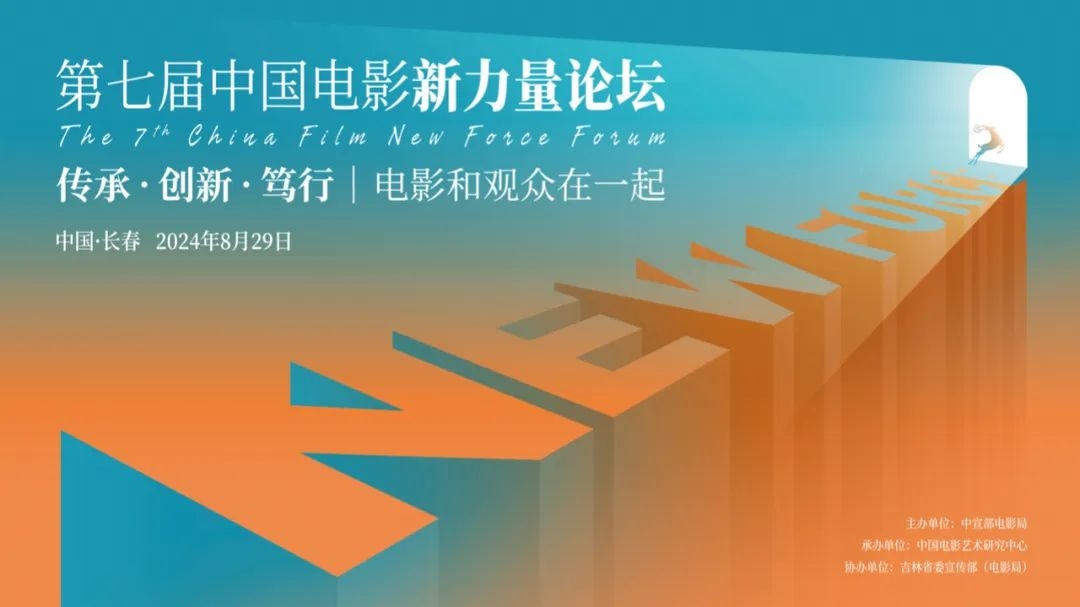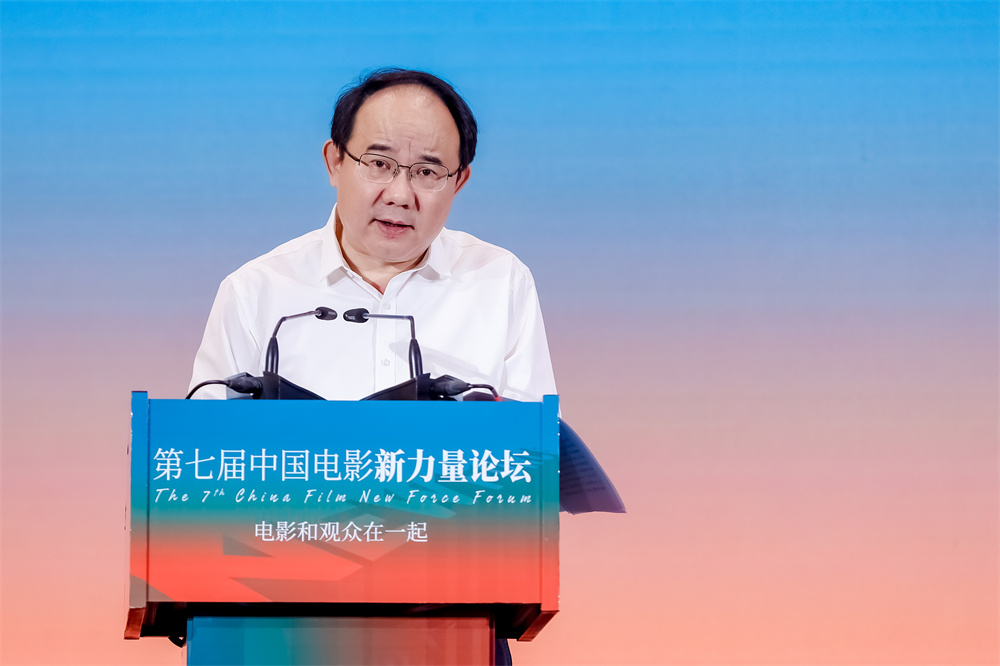
On August 29, the day after the opening of the 19th China Changchun Film Festival, the 7th China Film New Power Forum titled "Inheritance, Innovation, and Dedication: Movies and Audiences Together” was held at the Golden Hall of the Changchun International Film City. Since its inception in 2014, the China Film New Power Forum, initiated and organized by the National Film Administration, has been running for ten years. Over this decade, the forum has become an important platform and a significant brand leading the high-quality development of Chinese cinema, enhancing creative quality, and nurturing film talent.

Mao Yu, Deputy Director of the Film Bureau of the Publicity Department, speaks at the forum. All images in this article are provided by the official sources.
At the opening ceremony of the forum, Mao Yu, who oversees daily operations at the Film Bureau, stated in his speech, "Since the beginning of this year, the film industry has been forging ahead with the May 1st and summer release slots, which generated substantial box office revenue. However, we still have a long way to go and must acknowledge the potential crises. Since entering the summer release period, around 100 films have been launched into the market, yet the market performance has sounded the alarm—a decline of over 22% in box office, highlighting deep-rooted and structural problems within the film industry. The crisis has arrived, and change is imminent... In the face of these intertwined new and old issues, what should we do? There are no ready-made answers. We hope that through this forum, we can spark exchanges and discussions to seek a bright lighthouse for the future of cinema, as innovation can inspire further momentum to move forward.”
The morning forum focused on exploring the value and spirit of new strengths, divided into three topics: "Audience Engagement with Genre Films," "New Comedy and New Audiences," and "Innovating Film Language," hosted by Yin Hong, Vice Chairman of the China Film Association and a professor at Tsinghua University.
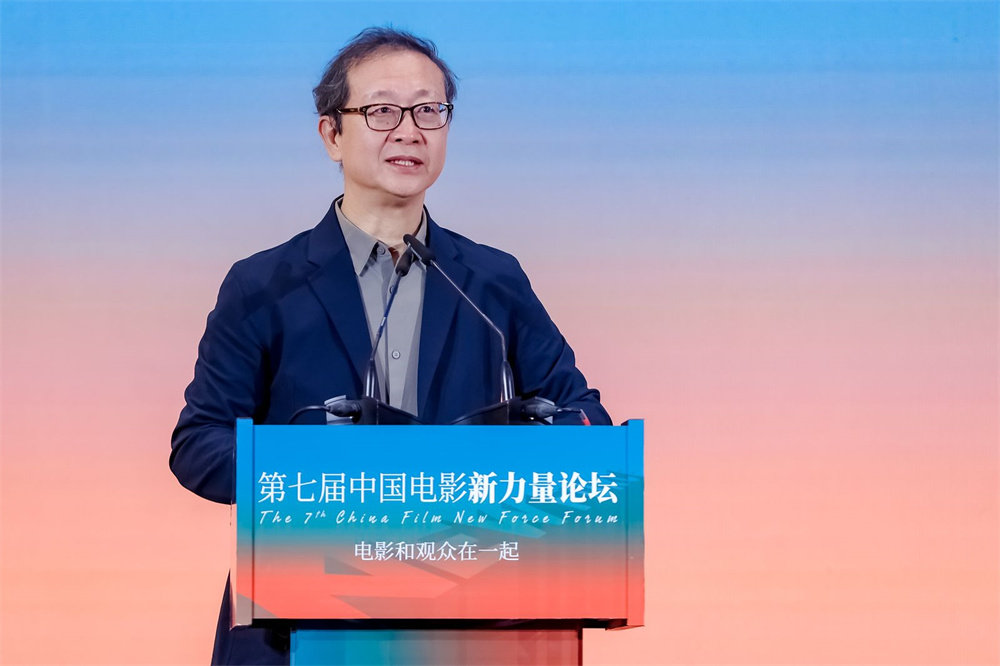
Yin Hong, Vice Chairman of the China Film Association and Professor at Tsinghua University.
“Innovation in Genres has Become an Inevitable Trend”
During his speech, Yin Hong noted that this year’s Spring Festival and Summer release slots showcased multiple genre films, indicating a shift in creative patterns. "It can be said that we can no longer identify purely singular films; many experts, both domestically and internationally, are analyzing the restructuring and blending of genres, and genre innovation has become an inevitable trend.”
The summer action-crime film "Rebirth," which premiered on August 16, has already grossed 265 million yuan at the box office. The film's director and lead actor, Ma Yuke, commented on genre films, saying, "Those who know me understand that I’ve never played the good guy as an actor. In my early attempts at directing, both 'Raging Tide' and 'Rebirth' are crime-themed films. This genre has many templates in both the Chinese and international film markets; we cannot face audiences with the same old routines because audiences are constantly changing, and we must keep pace with the times.”
“I hesitate to speak of innovation; I prefer to consider it micro-innovation, attempting to incorporate more emotions into my work. When dealing with crime genres, it should not merely focus on crime but also showcase how to combat it. By adding the emotional support of the victims, it becomes easier to engage the audience, allowing us to exert effort together in punishing criminals and their actions. At the core of my films lies the call for truth, goodness, and beauty because I believe there is definitely light in this world,” Ma Yuke added.
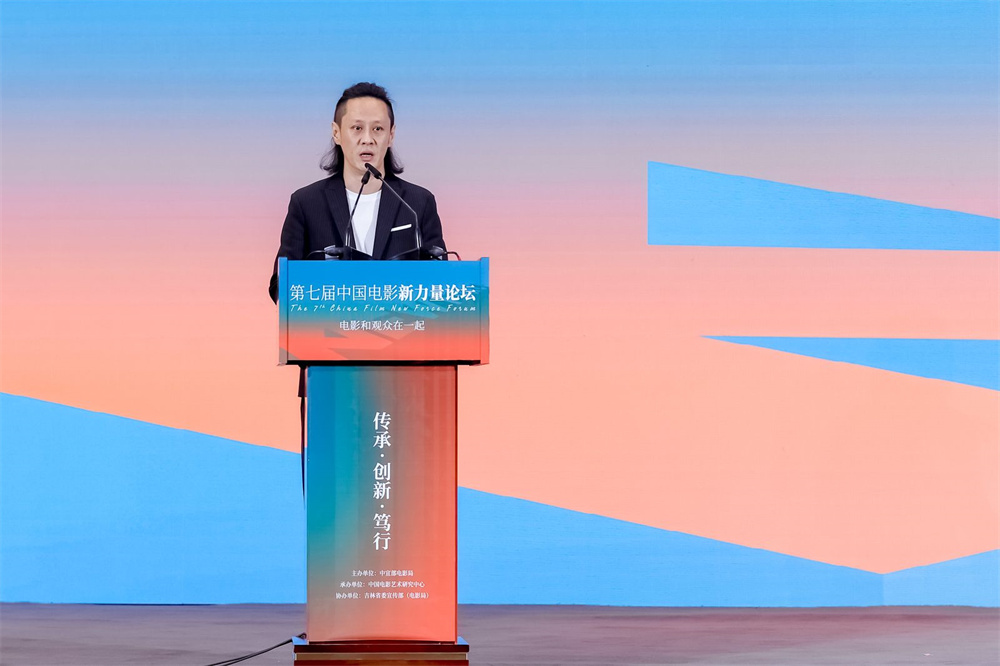
Director and actor Ma Yuke.
On August 10, the animated film "White Snake: The Floating Life" was released, achieving over 94 million yuan in box office on its opening day, becoming the "box office champion for the 2024 Qixi Festival." As the directors of the mythical IP "White Snake" trilogy, Chen Jianxi and Li Jiakai shared their insights. “It is a rare achievement for a domestic animated work to reach its third installment; this is thanks to the audience's love and our crafted characters. A portion of the audience fondness for animated films comes from lovely students, so when we create, we must first consider the animated images that campus audiences adore. Over the past five years, the animated characters of Xiao Bai and Xiao Qing have symbolized traditional culture while aligning with the aesthetics of young people today, accompanying them as they grow.” said Chen Jianxi.
Li Jiakai, in his speech, emphasized that using animated film to tell stories is akin to being a storyteller. “Whether dealing with Tang Dynasty tales or Song Dynasty anecdotes, we need to utilize modern technological means and audiovisual language to attract more people. In 'White Snake: The Floating Life,' we have injected new vitality into traditional stories by adding elements of Song Dynasty urban culture and life details.”
From television director to novelist, and then to screenwriter and director, Zhang Jiajia has undergone multiple impressive transformations over the past 20 years. His latest directorial work, "A Little Convenience Store on the Edge of the Clouds," achieved 500 million yuan at the summer box office. “As a member of the post-80s generation, I was born into the golden age of Hong Kong and Hollywood films. For those of the post-80s and post-90s, movies represent our youth. However, for the post-00s, they have not experienced the era of video halls and DVDs; their audiovisual language acquisition largely stems from web series and short videos. The previously established filmmaking rules may not hold for the post-00s. Only by developing new genres that belong to the new generation can we hope to usher in a new golden age for films,” said Zhang Jiajia.
Zhang Jiajia introduced that "A Little Convenience Store on the Edge of the Clouds" did not hold a premiere. Instead, it focused on the existing fanbase of the novel it was based on. “Compared to traditional commercial films, this film’s narrative is somewhat 'scattered,' but I can't discard so many character arcs from the novel; I can only enhance narrative efficiency. I’ve seen experts point out that this film violates creative rules, but without disregarding those experiences, one cannot restore the original story.” He noted that it has achieved certain success, at least bringing the post-00s audience into theaters, and he wants to define it as a new type.”
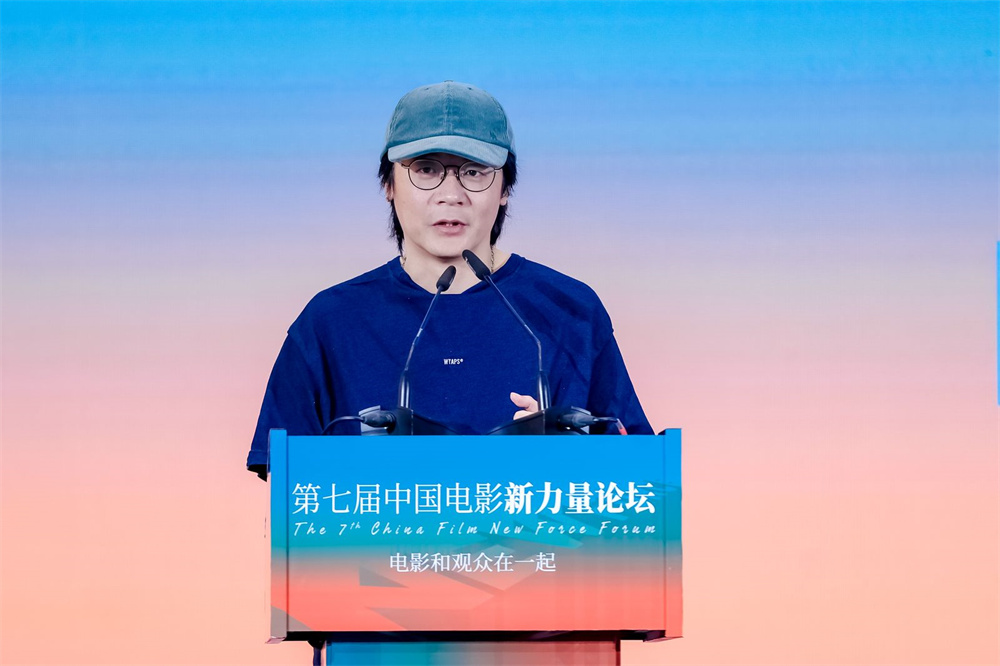
Director Zhang Jiajia.
The film on campus bullying, "Silent Kill," was the box office runner-up of this summer's releases. Director Ke Wenli stated that the characters in the film reflect a myriad of lives, with each role interpreting the theme of “silence” as a killer. “Films must adapt with the times, and genre films must also undergo change. Creators must stay sensitive and keep up with the audience's pace. In 'Silent Kill,' I attempted to integrate comedic elements into the thrilling plot. For instance, Cai Ming's character might induce laughter from viewers. This is a blend of genres, adding a bit of seasoning to the main dish, providing the audience with a more enjoyable viewing experience.”
“Another key point is that, from script writing to marketing stages, we utilized survey methods to evaluate among viewers, including our marketing partners, with comprehensive questions to identify issues for revisions and optimizations. This significantly reduces public sentiment backlash and negative audience reviews after the film's release, which has been very beneficial for my work,” Ke Wenli added.
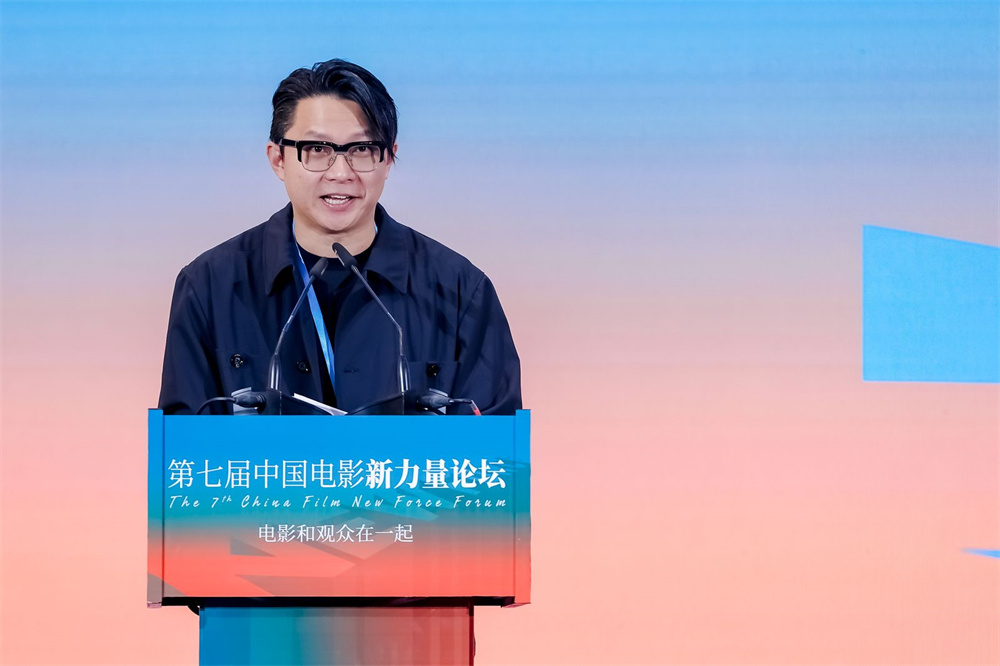
Director Ke Wenli.
"The Laifu Hotel" is the big-screen debut of director Liu Bowen. Although the box office did not meet expectations, it received a decent reputation among audiences. Liu Bowen expressed that he infused genre elements into this realistic film. “I particularly resonate with a teacher's remark that ‘a director is a candy, a beam of light for the audience.’ When audiences leave the cinema feeling empowered and warmed, that is what film creators should aim for. I also strongly agree with another elder's words—films should satisfy the audience's ‘unusual’ desires. A movie that touches hearts surely has its ‘unusual’ elements, which will also help attract its audience.”
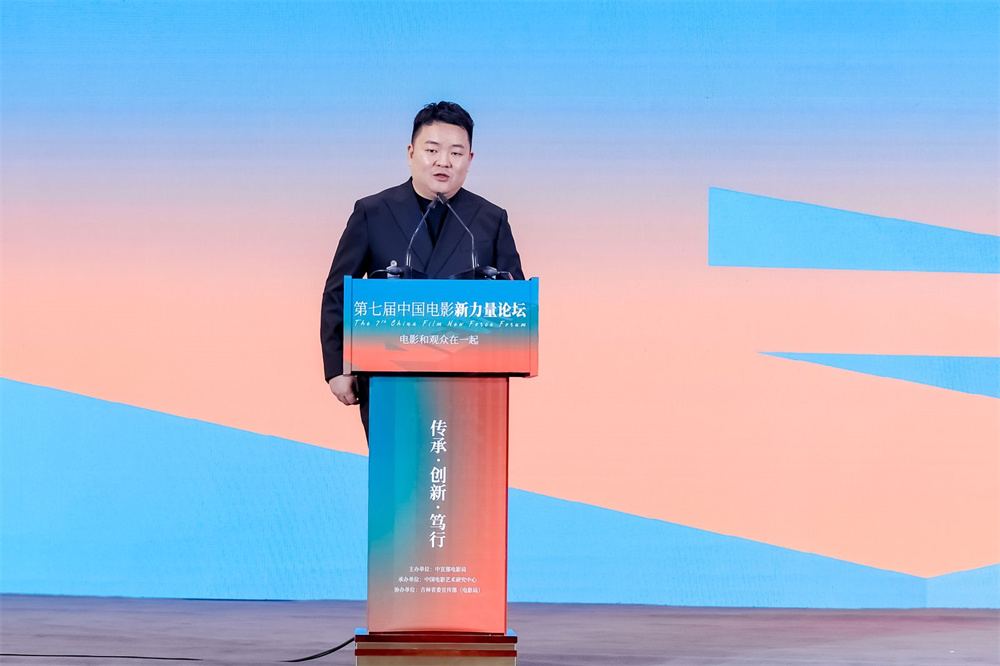
Director Liu Bowen.
As a well-established director and producer, Huang Jianxin commented that the box office results during this summer's release slot are unsatisfactory, and many factors contribute to this situation. “Currently, the Indian film market has also faced significant box office drops, and the South Korean film market is not optimistic due to filmmakers heavily participating in Netflix dramas. One might say that the current challenges facing films are global. In this era of economic downturn, the failure of films to produce the ‘lipstick effect’ (where more people watch films during economic crises) can be attributed to the fact that the virtual presentation of cinema offers experiences that don’t require real-life interaction, making it highly susceptible to replacements by the internet.”
“Recently, the game ‘Black Myth: Wukong’ has seen massive success, earning billions within days. I ponder why that is? Games are interactive; when young people engage with narrative-driven games, they directly experience effects on their personalities and character growth, naturally cultivating their enthusiasm. In contrast, watching films remains relatively passive—audiences engage passively with and accept narratives. We need to study how movie storytelling can engage viewers' perceptions and cognitions actively; this is crucial. New methods and technologies would inevitably bring forth new ideas. Genre merely represents a psychological model adapted by a portion of the audience; innovation should be of utmost priority in that space. Young directors should strive to create films that are lively and seductive, guiding audiences along—this holds hope for the future of Chinese cinema,” Huang Jianxin remarked.

Director Huang Jianxin.
“Generic Moral Evaluation Will Narrow the Path of Creation”
As the director and screenwriter of this summer's box office champion, "Grab the Toy," Yan Fei likened the Chinese film market to a classroom, stating, “Action films are like the sports committee member who can break into international markets; sci-fi films are like the academic committee member who can go abroad for exchange; art films are akin to the literary committee member who can be directly selected for Berlin or Venice; and comedy films are like the ‘bad students’ sitting at the back of the class who proactively reach out to third- and fourth-tier cities. They have a good rapport with audiences, sometimes performing well, sometimes not, yet they are not self-conscious because they feel the homeroom teacher is protecting their imagination and individuality, safeguarding their original intentions of spreading joy. I hope that one day, Chinese comedies can also step onto the international stage, allowing audiences from different countries to understand the authentic, multifaceted China.”
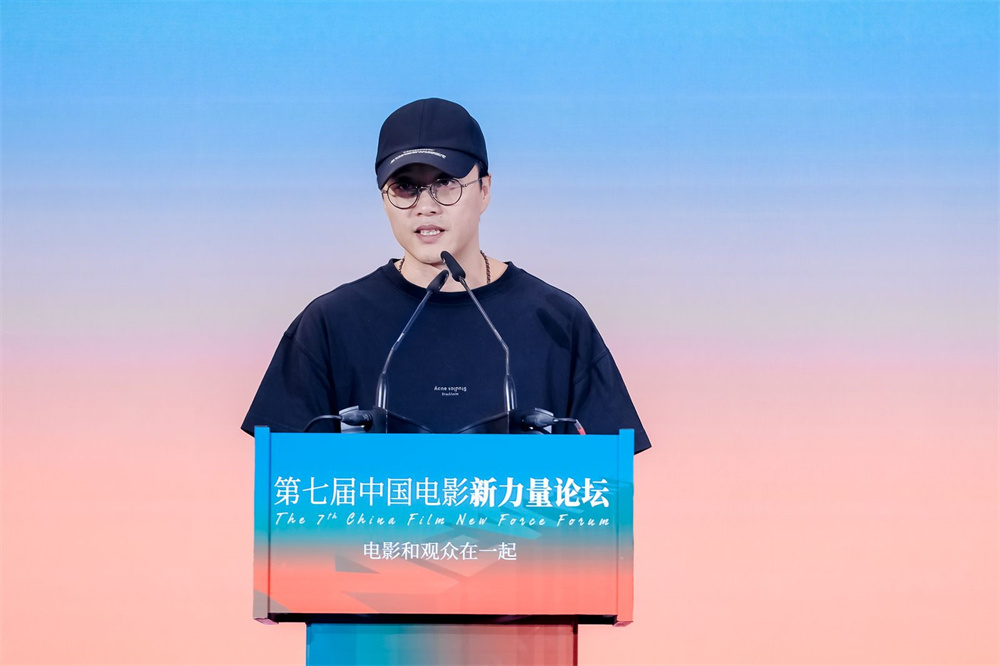
Director Yan Fei.
Director Dong Runnian's film "The Annual Meeting Must Not Stop!" achieved nearly 1.3 billion yuan at the box office during the New Year release slot. “Comedy films should not be solely about humor; they should reflect social issues that the public cares about.” Dong Runnian explained that during the creation of "The Annual Meeting Must Not Stop!", he and his team spent three to five years conducting in-depth field studies. “Many comedic segments are based on real-life occurrences; this greatly aided our creative processes. Thus, we must delve into life—daily life language, punchlines, and jokes are the freshest sources for us to seek creative inspiration.”
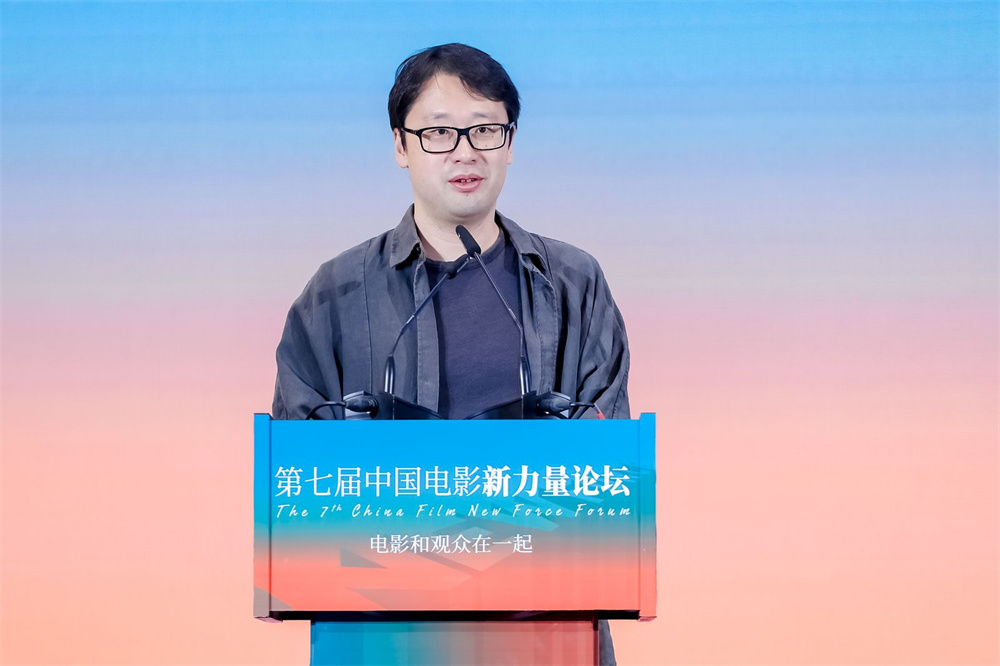
Director Dong Runnian.
As the director of this year's May 1st box office champion "On the Edge of Madness," Urina is the only female speaker at this forum. She believes that in this fast-paced internet era, the topics of public interest are becoming more diverse, and comedic films must accurately find points of resonance with

